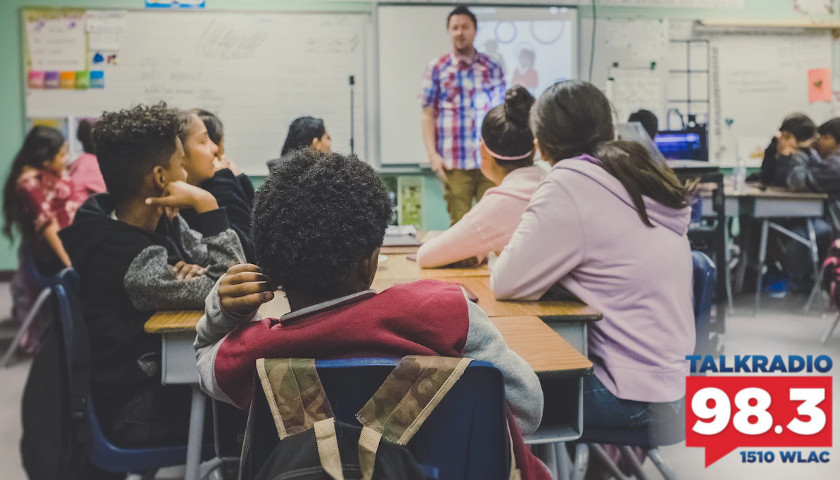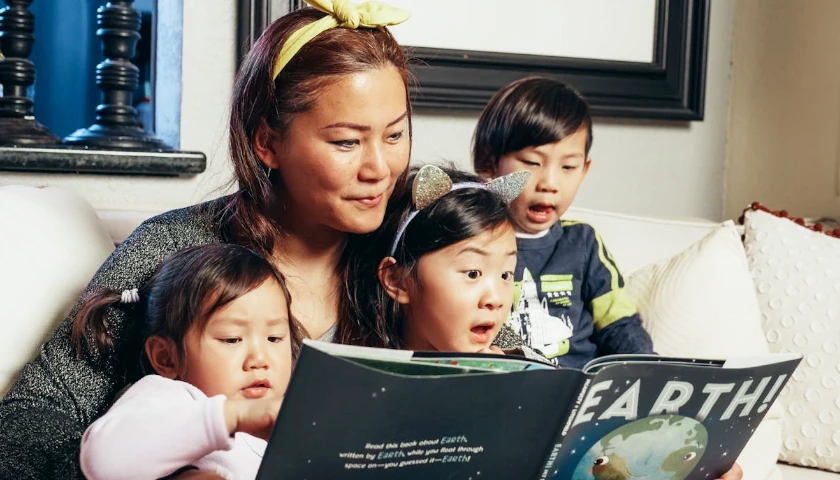Live from Music Row Thursday morning on The Tennessee Star Report with Michael Patrick Leahy – broadcast on Nashville’s Talk Radio 98.3 and 1510 WLAC weekdays from 5:00 a.m. to 8:00 a.m. – host Leahy welcomed Breitbart author Susan Berry to the newsmakers line.
At the end of the third hour, Berry discussed what she saw as a silver lining in response to the COVID shutdown affecting the education for children attending public schools. She added that this was the “bolt of lightning” that has jolted parents into paying more attention to what their kids are learning and has created a more pro-active approach in their child’s education.
Leahy: We are joined by my good friend and colleague at Breitbart and an expert on education matters, Susan Berry. Susan, before the break I asked you if you thought this year would present a fundamental change in how K-12 education is done in America. Will which is now 50 million. Will that start to decline as these other options grow?
Berry: Well I think that it will start to decline. I think that obviously that most of the children in this country attend public school. And I think that will still be the case for a while. But I think we are going to see as parents try out other methods because they are forced to. Necessity is the mother of invention.
I think parents will be trying new things. And I think that we will see other education ideas that will take the place of public schools. Even though online learning is not the best for young children, I think there has been a real surge in online learning and parent support for it for high school kids.
And I think that high school kids can deal with online learning. I mean we have now students that are just beginning college that graduated high school beginning college online. They are just going to be having online classes. And I think that older kids can deal with that.
And I think that it also introduces a certain amount of flexibility. You don’t have to sit in a classroom all day long. You can do other things and still have your class schedule. You have other time to do your homework during the day. It doesn’t have to be done at night.
I think that it’s going to introduce whole other flexibility into other kid’s schedules. For younger kids, I think we are going to see more of the small schools. I think private schools are opening. There are some states that are not allowing private schools to believe it or not.
Leahy: Yes. Like California. That seems unconstitutional to me.
Berry: Yes. Exactly. And that’s being challenged. But in many states private and religious schools are opening. And I think we’ll see even in religious schools you may some children that are not of that particular faith trying to get into those schools because they might be the best schools that are open and that are providing a good education.
So I think parents are going to be just thinking about school in a different way. And I think that’s really what the most exciting thing to me is about this time as much as its been difficult and stressful dealing with the virus and all of these restrictions. This is really an exciting time for parents to think about school in a different way.
They’ve had an opportunity to observe what their children are learning now during the shutdown starting in March. And I think that a lot of parents were awakened by that. They are not really happy about some of the things their kids have been learning.
We are seeing a lot of push back now from the left-wing groups like Planned Parenthood and other groups. The other LGBT groups that have had their agendas inserted into public school curricula. They are trying to get into online learning now because they know that a lot of parents are going to be using more remote learning or virtual learning programs. And they are trying to see if they can insert themselves into that because that’s how they ultimately get their connection with kids through those groups.
Leahy: How about the politics of this. If you are a parent let’s say in an urban setting and you are just fed up with the way the public schools are handling this and you are going to put up $5,000 or $10,000 a year to put your kid into a self-created neighborhood mini school with a couple of other parents or send them to a private school. Are you going to start saying why am I paying state and local taxes for a public school I’m not using? And would the impact of that be?
Berry: Absolutely. I think that’s what homeschoolers have been asking for years. (Chuckles) I mean would rather just not have to deal with it because they don’t want any intrusion of the government into their education system that they are using for their children. But you have a lot more parents that are going to be doing home education or micro-schools or even sending their kids to private schools.
You are going to have more parents saying hey, why am I spending money on taxes for everyone else’s kids and my kids are not using those services? And as more people start to think about that I think you are going to see a backlash against taxation for public schools. I really think that this whole year has changed public school education in this country.
It has opened up so many other issues and ideas. And I think that’s a good thing. I really do. I think that it’s great for parents to take on more responsibility for their child’s education. For many parents as soon as your child or even a preschooler you take them to preschool or you send them on the bus and that’s all you have to think about.
What happens between 8:30 in the morning and 3:00 in the afternoon you don’t have to really worry about it because other people are taking care of it. I think that’s gone. It’s time for parents to really start to look at what their children are doing. It started with the Common Core. The anti-Common Core movement. That’s a decade old now that movement Mike.
And parents started to get more involved in what their kids were learning. And now this is another big bolt of lightning that’s hit parents and is forcing them to really take a sharp look at what their kids are learning and how they are being educated.
Leahy: Although much of the schooling now particularly K-12 public schools are a mess. What I find interesting Susan here is you have quite an optimistic view of where this may lead us.
Berry: I do. It’s almost like you had to have some kind of an, as I called it before a bolt of lightning. You had to have some kind of a crisis in order for parents to take a look at what’s happening with their children. Look at just how many young people are now members of Congress and are ultra-liberal.
Listen to the full third hour here:
– – –
Tune in weekdays from 5:00 – 8:00 a.m. to the Tennessee Star Report with Michael Patrick Leahy on Talk Radio 98.3 FM WLAC 1510. Listen online at iHeart Radio.





